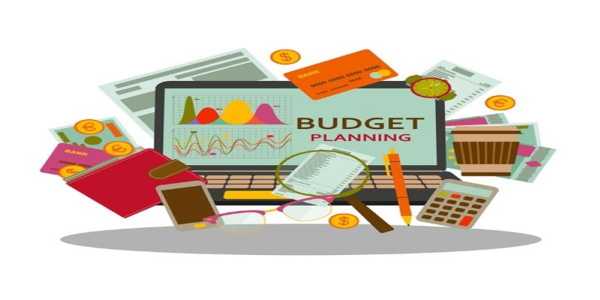How To Save On Groceries Without Coupons
Food prices keep going up. Every trip to the store feels like a challenge. Many people believe that coupons are the best way to save money, but that is not always the case. Some people lack the time to search for coupons. Others find that most coupons are for things they do not need. It is possible to lower your grocery bill without clipping or printing a single coupon. Saving money does not always mean doing more work. It means making more intelligent choices.
Shop With A List And Stick To It
Walking into a store without a plan is the quickest way to overspend. A shopping list keeps you focused. It prevents you from picking up things you don't need. Stores are designed to encourage you to spend more. Snacks, sodas, and other items are placed where your eyes go first. That is not by accident. It is a strategy.

A list should be based on what you plan to eat that week. Focus on basics like rice, beans, eggs, vegetables, and fruit. These foods are less expensive and can be used in various ways. When you plan meals, you buy only what is needed. This lowers waste and saves money.
Know The Prices Of Your Staples
If you always buy certain items, learn their regular prices. When you know what they usually cost, it becomes easier to see when something is really on sale. Stores often create fake discounts to make them appear more attractive. They raise prices first, then "cut" them.
Make a note of the regular prices for items such as bread, milk, cooking oil, pasta, or meat. Keep that list on your phone or in a notebook. This helps you make better choices when shopping. You can also check price comparison tools or grocery price trackers on trusted sites, such as Consumer Reports, to learn more about which stores have lower average prices.
Buy Store Brands, Not Name Brands
Store-brand items are often manufactured in the same factories as name-brand products. They have a different label. In many cases, they taste the same or even better. But they cost much less.
This is true for items such as canned vegetables, pasta sauce, cheese, frozen food, and more. Try switching a few name-brand items for store-brand ones. If they work for you, make the switch permanent. Over time, this saves a lot of money.
According to a recent report by the Food Marketing Institute, nearly 80% of shoppers report buying more store brands to stretch their grocery budgets.
Shop At Discount Grocery Stores
Not all stores charge the same for the same items. Discount stores like Aldi and Lidl, as well as regional grocery chains, offer reasonable prices on many items. Their selection may be smaller, but their prices are usually lower.
Sometimes, these stores do not provide plastic bags or feature elaborate displays. That is fine. You are there to buy food, not to enjoy music or bright lights. Pay attention to what matters—saving money.
You can also check stores like warehouse clubs or online retailers. Some stores offer savings on bulk items, which can be beneficial if you have the space to store them.
Stop Buying Everything Fresh
Many people believe that fresh food is the best, but that does not always mean it is the most sensible choice. Frozen vegetables and fruits are harvested at the optimal time and quickly frozen. They keep most of their nutrients and last longer than fresh ones.

Canned goods, such as tomatoes, beans, or corn, are also less expensive and remain suitable for months. Be sure to choose low-sodium options whenever possible.
Using more frozen or canned foods helps reduce waste and keeps your grocery bill low. It also helps during weeks when you cannot shop often.
Shop Less Often
This sounds simple, but it works. The more often you go to the store, the more you are likely to spend. Even quick stops for "just one thing" usually lead to extra snacks or drinks.
Try shopping once a week or every other week. Plan your meals, make your list, and buy enough to last. This saves time, energy, and money.
It also helps you avoid impulse buys. Impulse buys are things you did not plan to get but picked up anyway. These small costs add up over time.
Eat Before You Go Shopping
Never go to the grocery store when hungry. Hungry people make bad choices. They buy more food and choose items they do not need. Eating before shopping helps you think clearly. It keeps you focused on the list.
Even a small snack before shopping can help. This small trick helps prevent overspending. Hunger is not a good shopping partner.
Stop Buying Pre-cut And Pre-made Foods
Stores charge extra for cutting, mixing, or cooking. Pre-cut fruits, salad kits, marinated meats, and microwave-ready meals may seem convenient, but they are often more expensive than their fresh counterparts.
Buying whole fruits, raw meats, and vegetables can save a lot. It may take a little more time to prepare, but it is worth it. You get more food and more value.
Even making your snacks instead of buying them pre-packaged saves money. A big bag of oats or popcorn goes a long way.
Check Unit Prices
Many people focus on the hefty price tag, but the unit price is more important. Unit price indicates the cost of an item per ounce, pound, or litre. You can usually find it on the shelf tag, just below the main price.
This helps you compare two items of different sizes. A bigger package is not always cheaper per unit. Sometimes, smaller ones are a better deal. Use the unit price to make smarter choices.
The US Federal Trade Commission explains this further through retail labelling rules that protect shoppers from misleading price tags.

Freeze Extra Food
If you find a good deal on meat, bread, or vegetables, consider buying extra and storing it in the freezer for later use. This keeps food fresh and safe. Freezing helps prevent waste and lets you save money in the long run.
Use freezer-safe bags or containers. Label them with the date. Eat older items first. Freezing also lets you prepare meals ahead of time and save even more.
Learn Simple Meal Prep
Cooking at home saves more money than eating out or buying ready-made meals. Learn simple recipes using basic foods. You do not need to be a chef. Just make enough food to cover lunch and dinner for a few days.
Rice, beans, stir-fries, soups, and baked dishes are easy to make and cheap. You can find recipes on food websites or even on government health pages, such as MyPlate.gov, which offers tips on affordable and balanced meals.
Home-cooked meals are healthier and cheaper. You control what goes in your food. That means less sugar, salt, and fat.
What Matters Most
Saving on groceries without coupons is not about working harder; it's about working smarter. It is about thinking smarter. It means planning meals, sticking to lists, and avoiding waste. It means making changes that may feel small but have a significant impact over time.
Food is a significant part of your monthly budget. Every bit you save gives you more Breathing space for other needs. When food prices continue to rise, making the right choices matters more than ever.
Sources
Food Marketing Institute Grocery Data







